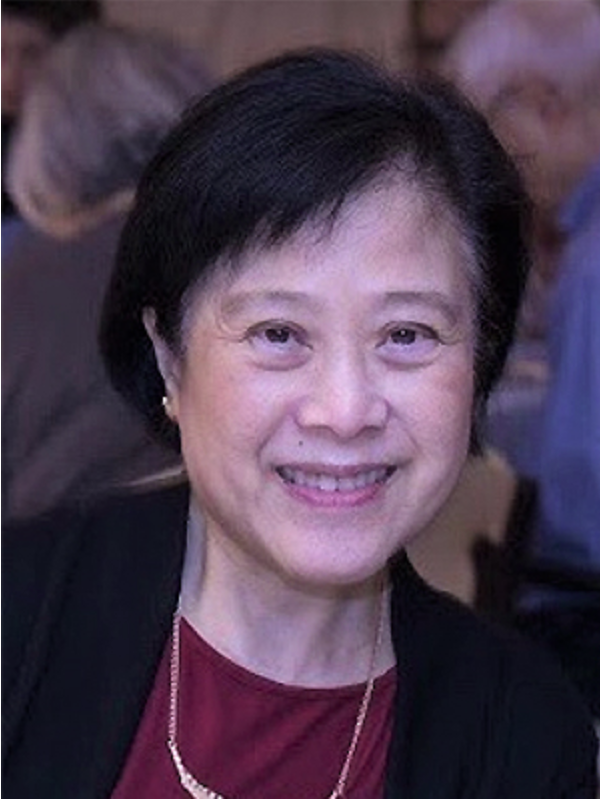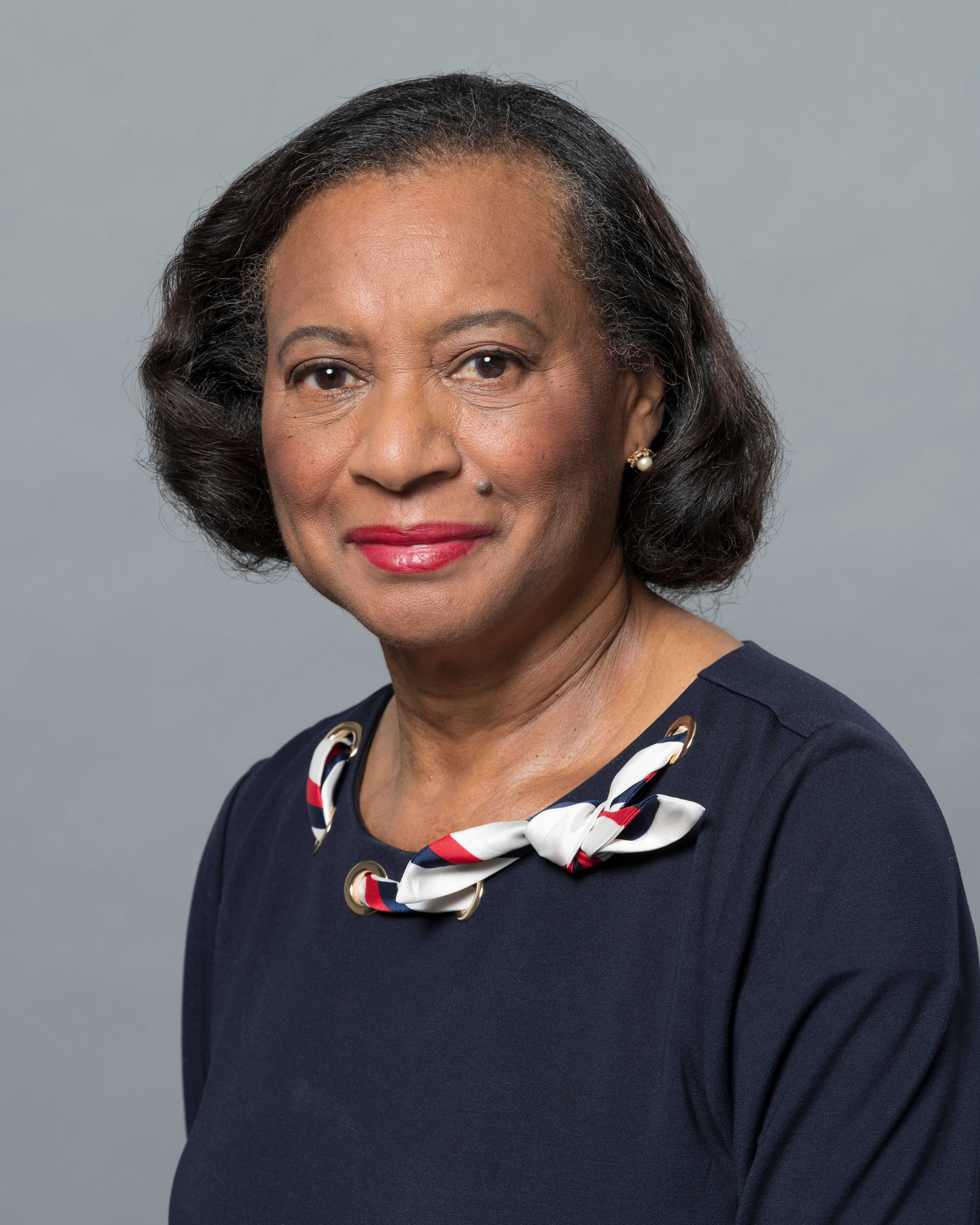AARP Hearing Center

Advocacy. Education. Collectivism. Community. Diversity. Care. Family.
These concepts are familiar and integral to the volunteers of AARP. Since 1958, the members and volunteers of AARP have worked together to promote the betterment of the lives of not only the fifty-plus population, but their families and caregivers as well.
It all started with Dr. Ethel Percy Andrus, whose mission in life was to provide avenues for people in need to get the support, resources, and the endorsement they needed, be that from government programs or the health care system in the United States. After working as an educator and principal and achieving a doctorate in Philosophy from the University of Southern California, Dr. Andrus stepped away from her career to take care of her ailing mother. It was then she realized that the States lacked resources for persons over sixty-five to live fulfilling and meaningful lives. She went on to form the National Retired Teachers Association and AARP.
Dr. Andrus seemingly did it all – from promoting diversity in schools, to teaching night classes for the parents of her students, to caring for her mother. Every step of the way, she encouraged community engagement, thereby revolutionizing how the national community at large felt about and viewed the elderly. She brought Americans together in the effort to achieve a better quality of living for all Americans, not just the older generation. Dr. Andrus understood that the betterment of the senior community could best be achieved by harnessing the talents of young and old people, much like the philosophy, “we are all in this together,” results in an improved quality of life for everyone.
To Serve, Not Be Served – this was the motto by which Dr. Andrus lived her life, and this remains AARP’s motto today. We see this sentiment still resonating palpably within the AARP community, and it is obvious that Dr. Andrus’s endeavors have made a long-lasting impact on American society at large.
Today’s AARP volunteers follow in the footsteps of Dr. Andrus, and through her guidance, are able to ensure their own communities have sufficient resources, efficient aid, and a genuine desire to be a part of a larger community. Through their actions, our highlighted volunteers lead the charge to promote a better life for people over fifty and their families. Inspiring stories told by AARP volunteers amply demonstrate that Dr. Andrus’s personal motto resonates with these women.
On this Women's History Month, we decided to profile a few of our amazing AARP Texas volunteers who are working to make life better for our 50+ community and their families.
Dr. Beverly Gor
Dr. Beverly Gor became a member of AARP in 2000. Prior to becoming a volunteer, she was able to enjoy AARP-sponsored events, activities, and benefits. She attended their plays, movies, and cultural events, and availed herself of the AARP discounts. In 2015, AARP provided Beverly and her colleagues the support to coordinate an Asian American Pacific Islander Health Summit, which was a grand success. Dr. Gor intends to throw another Asian American Pacific Islander Health Summit in 2023. She says that with the resources and ideas provided by AARP, she is more easily able to form an agenda and publicize her event.

Just like Dr. Andrus, Dr. Gor has a ninety-seven-year-old mother who requires assistance in matters regarding medical issues, financial matters, and managing her own home – issues to which many people over fifty can relate. “Through the AARP caregiving programs, I have learned how to communicate better with her, and to deal with the challenges that caregivers face.” As a retired health care professional, issues such as affordable medications, low-cost hearing aids, food security, and nursing home reform, resonate with Dr. Gor, and the AARP advocacy for these matters is very helpful.
After retiring in 2019, Dr. Gor began volunteering with AARP. “…the more I looked at what they do, I believed that what they’re advocating for, for Texans 50 and older, really impacts all of us… That’s a very important thing to me.” This rings true with one of AARP’s slogans: “What we do for us, we do for all.”
Dr. Gor has made an impact on the community at large and focuses her efforts to promote consciousness among the Asian community in Texas, particularly that of Asian women. “One of the biggest changes in my community is that I’ve been able to elevate awareness of how many people in the Asian community, especially women, are caregivers to their loved ones. And because of my own experience and what I have learned from AARP, I’ve been able to point community members to resources…” Some of the issues facing Asian women and their families in Texas include finding the right caregiver, navigating the medical system, and understanding Medicare. Dr. Gor assisted AARP in doing an online webinar on caregiving in the Asian community which featured her friends and family members who shared their experiences and the cultural nuances of caregiving.
Dr. Gor intends to keep volunteering with AARP once her executive council term ends in 2025. “I have several retired friends who are looking for volunteer opportunities and so I will encourage them to look at AARP as a possibility for volunteering with them, because they do some great and fun things, and educational things, and you can meet people.” Dr. Gor believes it is immensely important for retirees to have a community of people like them of which they can be a part. Beverly encourages those who are interested to visit AARP’s website to find areas of interest – whether they be Tai Chi and Zumba classes, or brain games and workshops.
Eva Bonilla
Eva Bonilla began volunteering with AARP in 2014. She served as the president of the Fort Worth League of Neighborhoods Associations, and in 2014, AARP provided her organization with a walkability study of their area. This is what got her hooked into the organization: her neighborhood was going through gentrification, and AARP provided a jumping off point to ensure that Latinas in the area would not be forced to move or be overlooked by the local government.

Bonilla has been active in her communities since she was a young child. Learning from her parents, who were also community activists, she states she was “volun-told” to always be a part of whatever efforts the group body was trying to achieve. Bonilla is a member, of MANA, the Mexican American Women’s National Association, and the largest national Latina organization in the United States. In 2010, AARP and MANA partnered to teach members of the Latina community about long-term care and preparing for retirement and savings and budgeting.
When asked about her personal growth as a volunteer, Bonilla states that, “I feel like I’ve become a professional…More women and people think I work for AARP – they don’t know that I volunteer unless I tell them…Usually I’m doing videos for different celebrations, or I’m doing town hall meetings, leading them.” She also talks about her advocacy efforts in Fort Worth by serving on the age-friendly and dementia-friendly population in Fort Worth. Her advocacy not only helps to educate others, but herself as well. “We’re going to be teaching them for the next three weeks on how they should interact and about what it feels like to have dementia…I learned a lot, so I know that people that we speak to also learn a lot.” Bonilla also serves at the James L. West Dementia Care Center and has been assisting the launch of a Spanish-speaking bilingual education program to educate the caregivers in Spanish. “We are the only Spanish-speaking program for dementia care in the whole state of Texas.” She indicates that the Spanish-speaking community is very neglected, despite the Latin community quickly becoming the majority demographic in the Fort Worth area. Getting the city of Fort Worth staff educated in regard to age-friendly and dementia-friendly programs and assistance is how Bonilla currently spends a large portion of her time.
For Bonilla, volunteering at AARP is a lifetime commitment: “Until I can’t walk,” she says, laughing. At age sixty-five, she attended a workshop thrown by AARP called, “Life Re-Imagined After You Retire” where attendees were told that it is possible to take chances after you’re retired. “You can make as much money as you want…You can start your own business, and if you fail, so what?” And that’s just what she did. In 2015, Bonilla started her own business, Vamos DFW Tours where she employs tour guides in the Dallas and Fort Worth area. She serves as an inspiration for members and volunteers at AARP. “That’s what I like to tell the people that I volunteer with: Look at me. They can’t believe that I’m seventy-four, with the energy that I have…If you get out there and hustle, you’ll be surprised what energy you have, but if you stay home, on a recliner and look at TV, you’re going to age, you’re going to get sick. I don’t have time to get sick.”
Charlene James
Charlene James had recently retired when she began volunteering with AARP in 2009. A friend recommended she volunteer, and she began by participating in events and giving presentations. “I’ve always been interested in doing work for the betterment of mankind, or society as a whole… I always believe that we should be of service when we have the ability to do so, and so I wanted to continue doing that when I formally retired.”

James started out working with staff to identify and develop a plan of action for AARP Houston’s work in the community. From there, she went on to serve on the Executive Council of AARP Texas, where most of her work was oriented towards advocating for AARP priority areas and issues. After two years on the Executive Council, she was asked to serve as the volunteer state president, a role that involves working with other members of the Council. There, she was able to interact with other AARP state offices and volunteers. This allowed James to see the bigger picture for AARP in terms of its mission to help people over fifty to live the best lives they could. “We’re the voice, we’re the ear, we hear what people are saying, we hear what some of their issues and challenges are in just trying to live every day.”
James sees volunteerism as an opportunity to serve where you’re needed. She emphasizes the importance of not only spreading the word regarding issues affecting those over fifty, but on the significance of advocacy and education. “Part of our job is really to go out into the community and educate people. Fraud exploitation and abuse is rampant among the fifty-plus population. It is our duty and AARP does an excellent job with its fraud network, to really try to keep people in tune with what the issues are, how to be on the look-out for scammers, so that they won’t suffer any kind of potential danger of loss, financially.” Of course, the elderly community, though not the solitary prey of scammers and fraud schemes, are the most heavily targeted by malicious actors.
Enedelia Obregon
Enedelia Obregon started out as a state volunteer at Texas AARP, and after being recruited by a fellow member, she joined AARP Chapter 2700 in Austin. Soon, she became the president of that chapter, and returned to volunteering once her tenure was over. “I enjoy doing things for the community, I always liked being involved…long before I was retired.” She currently sits in the Legislative Chair of Chapter 2700 and is involved in advocating for laws that will improve the lives of older people. As a lifelong volunteer, having given over sixty-five gallons of blood in thirty years, or working with her church, Obregon places particular emphasis on the individual’s duty to transform their communities into something they can be proud of. “You’ve got to make an effort to make the community into what you want it to be.”

Her main priorities lie in uplifting those communities that are often ignored or forgotten when state representatives write policy; particularly, the population of people of color in Texas. Obregon grew up in a family of migrant farm workers, and was the first in her extended family to attend university and achieve a degree. She cites her mother as her main motivator: “I went away which is not traditionally something that Latinas do. Thankfully, my mother finished raising us and she told, ‘Go, get educated, follow your dreams and go where you need to go…’ That was my biggest concern, letting my mother down.” After getting her degree, Obregon was able to help her sister achieve her degree as well. Obregon’s mother advocated for her daughters to live the lives they wanted, to find their place in the world, and with her blessing, Obregon has gone on to be a champion for those individuals who lack the means or resources to advocate for themselves.
“You are not obligated to complete the work, but neither are you free to desist from it,” is a Jewish saying, originally attributed to Rabbi Tarfon, Mishnah, Pirkei Avos, 2:21. Obregon cites this quote as she declares that she will volunteer with AARP for as long as she can. “There’s so much work to be done…You cannot do it all, but you can do something.” She relates to those in hospice or elderly care that sometimes at that age, people don’t always feel their best. But Obregon maintains that there is always something for everyone to help promote a better standard of living for retirees and their families. “You can’t do it all, but you have an obligation to do something, because nothing will change otherwise.”
During the ice freeze in February of 2023, Obregon cites how much it meant to her that her neighbor brought her and her family coffee every morning while they were without power. She cites another incident in which, after she had fallen and broken her elbow, another neighbor offered to take her to physical therapy, despite having four children under the age of ten. These acts of altruism and kindness resonate with the message of AARP: “With AARP, you don’t have to be a member, but to be a member implies that you are watching out for others.” Just like her neighbors were watching out for her, Obregon has taken it upon herself to watch out for members of her community by serving the community through advocacy and legislative issues. “We’re always doing things for others, it’s not just about us, it’s about other too, our community.”
These women have dedicated their lives to the betterment of our society as a whole. However, as Obregon correctly tells us, “Democracy is not a spectator sport, and making your community what you want it to be can’t be that until you get involved.” On March 1st, Dr. Gor, Bonilla, James, and Obregon all attended Advocacy Day at the Texas state capitol in Austin. There, they spoke with legislators and state representatives on issues regarding nursing home reform, providing medically tailored meals to low-income individuals, and the importance of having back-up sources of power in light of Texas’s now-yearly recurring issues with ice storms. “We had the opportunity to visit with our respective legislators to talk about AARP Texas state priorities and agenda. And that’s always a very interesting and meaningful activity that you get to sit down with staffers or the state representative or the state senator to really talk about what are some of the issues that need to be addressed, or if they’re being addressed, perhaps they need to be some slight revisions to them,” said James.
They were also there to express the importance of having health care access in rural areas of Texas, areas where an individual may be required to drive for hours just to receive basic or advanced care. “We have greater needs as we get older. And women live longer than men, statistically…And the idea of not being able to afford or not being able to have to have access to healthcare is something that worries women a lot. When you’re retired, you have less money, and you may not be able to drive 100-200 miles to go see a primary care physician,” said Obregon.
Women helping women and their communities provides these women with satisfaction and the opportunity to spread their message to legislators, which is key to making long-term changes. “That was very exciting, it was good to meet some new friends across the state who have the same passion that I do,” said Dr. Gor. “When we go to the state capitol, I think that’s a big win. When we get to interact with the senators and the state representatives…it’s a win when they see that their constituents really care,” said Bonilla.
“You quickly recognize the role that women play in the role of advocacy. In light of Women’s Day, it is only appropriate that we recognize the leadership among AARP who have come to the forefront in terms of legislative advocacy, program planning, and service delivery,” said James.
Thus, the path that Dr. Andrus paved in her days has been established and followed by these influential women of today. By participating in collective action, driven by communal goals, these women prove that we can make a huge difference in not only our own communities, but for women, the fifty-plus community, and their families in Texas, across the nation, and ultimately, for the future generations of the world.
Share your expertise and talents with us. Register at aarp.org/txvolunteer to become an AARP Texas volunteer.
Article by Jasmine Boone, AARP Texas Volunteer































































